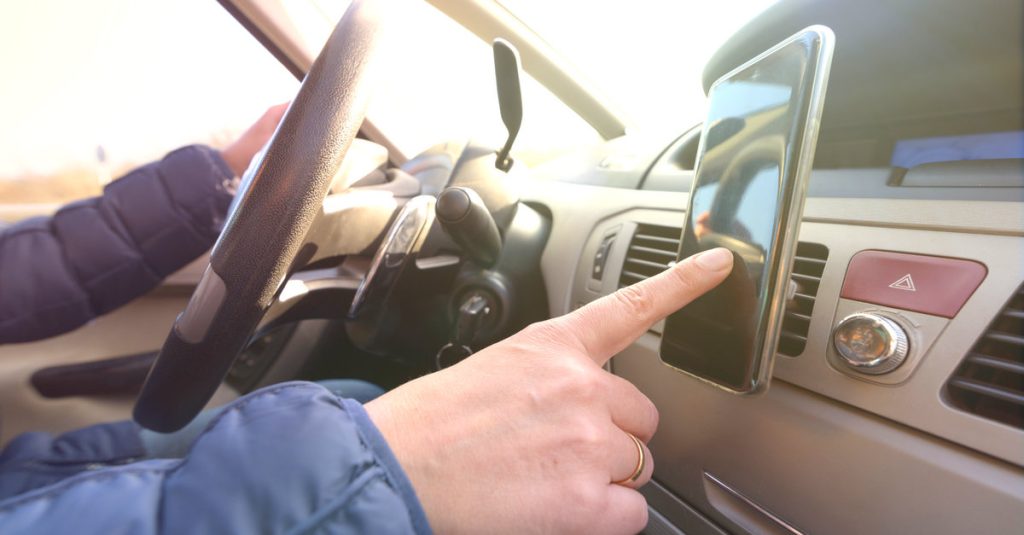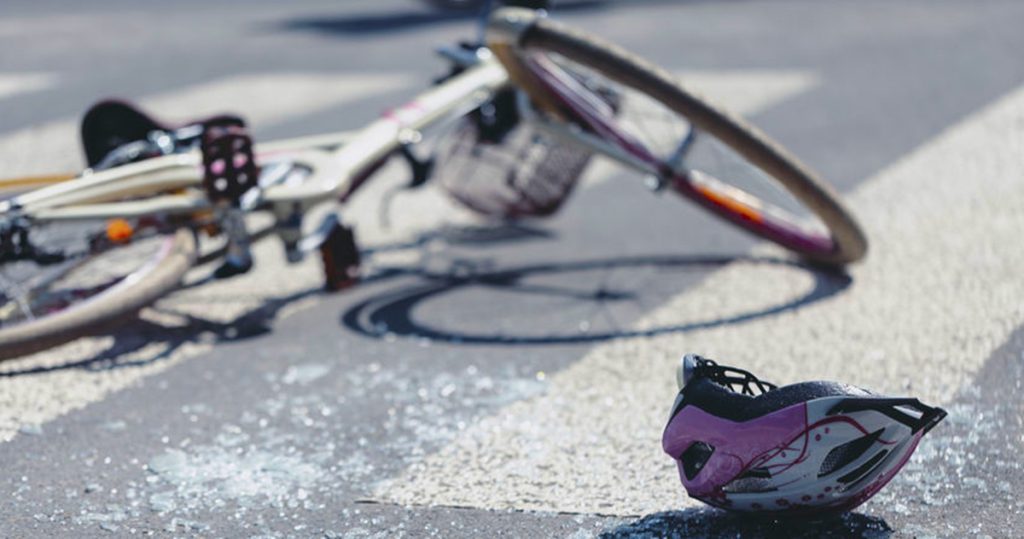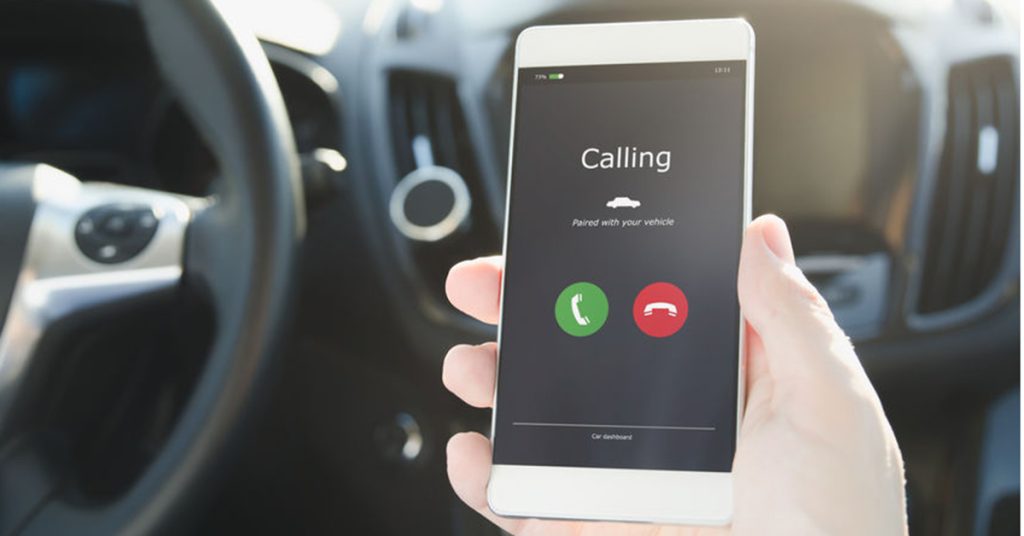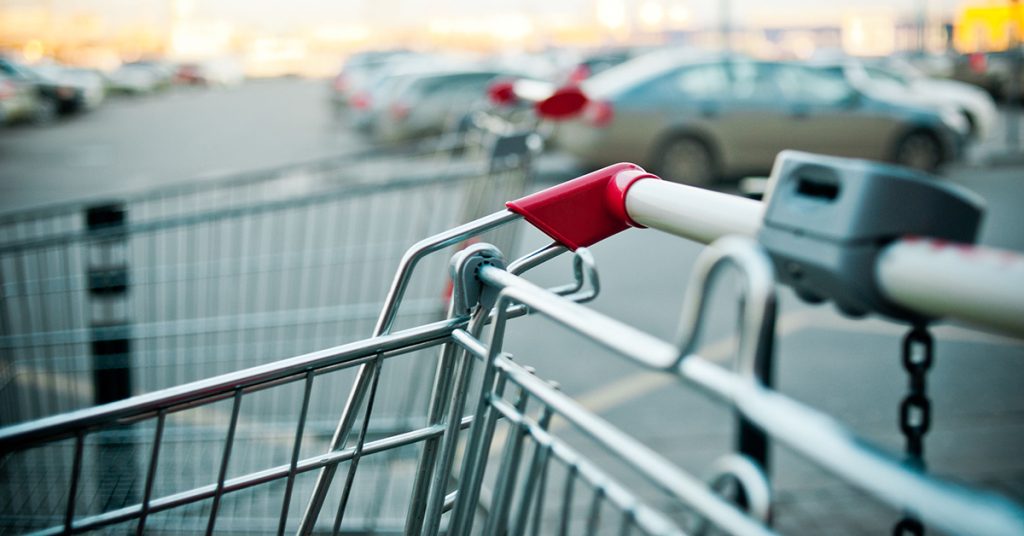Posts Tagged ‘distracted driving accidents’
Proposal to Strengthen Massachusetts Hands-Free Driving Law By Adding Ban on Recording and Broadcasting While Driving
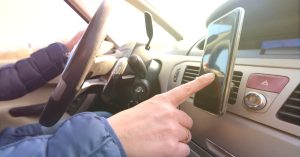
Drivers are not allowed to pick up cell phones under the Massachusetts hands-free driving law, but can quickly tap the device for activation of hands-free mode or GPS.
A dangerous trend has emerged on our roads, cell phones and social media accounts, with the rise of drivers “vlogging,” live-streaming and making video phone calls. In a 2020 survey, more than 20 percent of drivers admitted to recording video on cell phones. This is more than double the response from 2015.
Now, after a cyclist’s tragic death, a local lawmaker is proposing Massachusetts update its hands-free driving law to ban both recording and broadcasting video while driving.
Nationwide, 48 states have banned texting while driving and 24 states have passed hands-free driving laws, according to the Governors Highway Safety Association.
Massachusetts would join four other states which have banned recording and broadcasting as part of their hands-free laws, according to state Sen. Jo Comerford, D-Northampton, who has proposed the legislation.
Sen. Comerford proposed “Charlie’s Law” in the wake of a cyclist’s death near Northampton High School in October 2021. A 23-year-old driver is accused of video chatting on the FaceTime app, then running past a stop sign and striking the cyclist in a fatal bike crash, according to local news reports. The driver now faces criminal charges, including negligent motor vehicle homicide. Meanwhile, state lawmakers held the first hearing on Charlie’s Law earlier this month.
Background on Massachusetts Distracted Driving Laws
Looking to prevent injuries and deaths in car accidents, Massachusetts passed a ban on texting while driving in 2010. After many years of debate, lawmakers reached agreement on a more comprehensive hands-free driving law in 2019.
The Massachusetts hands-free driving law took effect in early 2020 and drivers now face fines for violations, starting with $100 for the first offense.
For third and subsequent offenses, drivers face up to $500 in fines and an insurance surcharge. They must also attend a distracted driving education program.
Under the hands-free law, drivers are only allowed to touch mobile phones and electronic devices to quickly activate hands-free mode, when devices are mounted to a windshield, dashboard or center console. Drivers are still allowed to use voice-to-text commands and make phone calls so long as cell phones are properly mounted.
As it stands, the Massachusetts hands-free driving law does not specifically ban drivers from making video conference calls or vlogging activities, such as recording or live broadcasting video of one’s self while driving to post on social media sites. As long as cell phones are mounted, drivers are not violating the law.
Drivers may be cited or charged if police investigate a car crash and find they violated another traffic law, such as a marked lanes violation. But updating the hands-free law – which is a primary enforcement law – may allow police to stop and cite drivers they see using cell phone video features before a crash happens.
Sen. Comerford has proposed S. 2733, “An Act Prohibiting Video Recording or Broadcasting While Driving.” The bill proposes adding language to the existing law stating no operator shall record or broadcast video of themselves on a mobile device, with a few exceptions.
- Drivers would still be allowed to record or broadcast video in an “emergency or exigent circumstance” or “when it is so clearly in the public interest as to override the public safety purpose of this sentence.”
- Dash cams can still be used to record traffic conditions or passengers in a vehicle, but they must be mounted. This allows commercial drivers, Uber and Lyft drivers to continue recording passenger behavior.
More Than Twice As Many Drivers Admitted to Recording While Driving in 2020
In its 2021 Driving While Distracted study, State Farm Auto Insurance reported 22 percent of drivers admitted to recording behind the wheel in 2020, compared to 10 percent in 2015.
Younger drivers were more likely to engage in this behavior:
- Nearly half – 44 percent – of drivers in the 18 to 29-year-old demographic admitted to recording video while driving.
- More than a third of drivers age 30 to 39 admitted the same.
This was not the only increase. State Farm reported 89 percent of drivers – or nearly 9 out of 10 – admitted to engaging in one of the 14 distracted driving behaviors covered in its online survey.
One troubling note was most drivers in states which had passed hands-free driving said they were aware of laws, but one in five were not informed. Six percent of the drivers even said their state did not ban handheld cell phone use.
Contact Breakstone, White & Gluck For a Free Legal Consultation – Boston Personal Injury and Car Accident Attorneys
At Breakstone, White & Gluck, our Boston personal injury lawyers offer more than 100 years combined experience representing those injured by negligent and reckless driving. Our attorneys work with clients throughout the Boston area, including those who live and work in Boston, Cambridge, Somerville, Everett, Brookline, Arlington and Quincy.
If you have been injured in a car accident caused by another driver’s negligence, you may require medical care and have to miss time at work. You may have many questions. For a free legal consultation, contact Breakstone, White & Gluck at 800-379-1244 or use our contact form. Our attorneys will review the facts of your case with you and help you determine whether you have a potential claim.
Distracted Driving Accidents Have Seriously Injured Cyclists in Massachusetts, Pennsylvania and Florida

Over the past year, distracted driving accidents have seriously injured cyclists in Massachusetts and other states.
During the past few months, you may have noticed more bicyclists and fewer cars out. Massachusetts bike shops have confirmed that sales are way up since the COVID-19 emergency began. And during an uncertain time, it has been nice to see people enjoy bikes.
But now, as Massachusetts slowly re-opens the economy, driving patterns are changing again. More cyclists are out, but increasingly, so are cars. Coincidentally, traffic laws have also changed. As of April 1st, the Massachusetts hands-free driving law took effect, banning all hand-held cell phone use. Going forward, drivers must connect to voice-activated technology.
This is an important new law for cyclists, who often travel to the immediate right of a vehicle in the bike lane or roadside. When a driver doesn’t pick up a phone, this takes away an unexpected movement, a layer of danger to cyclists.
But several other layers remain. The reality is many drivers do not even realize cyclists are nearby. But cyclists are close and are vulnerable to your quick, unpredictable movements, such as when you pick up a cell phone, reach into your glove compartment or open a fast-food bag as you drive. Or when you tend to your children or other passengers.
If you are a Massachusetts driver, now is the time to set up your vehicle for hands-free cell phone use. Commit to follow the new law and drive safely.
Also commit to check for cyclists. When you stop at a traffic light or stop sign, check in front of you, to each side and behind you. Bicycle accidents often happen because cyclists are approaching from behind cars. Many drivers neglect to look there. Drivers are less likely to look if they are focused on their cell phone or texting while driving.
Many communities are expanding sidewalks or changing traffic patterns to make room for social distance. This means you may encounter cyclists in new areas. Approach slowly, with caution and patience.
Recent Cases: Distracted Driving Accidents and Injuries to Cyclists
Over the past year, there have been several news stories about distracted driving, leading to cyclist injuries and deaths. Even as states such as Massachusetts and Maine have strengthened laws, the number of distracted accidents continues to rise.
Ipswich Texting While Driving Crash Kills Cyclist
On March 26th, just days after the Massachusetts stay at home advisory took effect, there was a tragic crash on an Ipswich Road. According to the The Boston Globe, a 43-year-old driver fatally struck a cyclist in the North Shore community, also injuring two other family members on bikes. Ipswich Police and the Essex County District Attorney’s office announced the driver has been cited for motor vehicle homicide by negligent operation, marked lanes violation and composing, sending and reading an electronic message. A clerk magistrate will decide whether a criminal complaint will be issued.
Pennsylvania Driver Accused of Texting in Cyclist’s Death
In April 2019, a Pennsylvania woman was accused of texting while driving. Penn Live, a local news website, reported she struck a male cyclist in Mount Joy Township. Forensic analysis determined she had sent a text message a minute before the crash. She received a message, then tried to call 911, as a neighbor also called in.
The cyclist died from multiple traumas nine days later. In this case, the driver was charged with felony homicide by vehicle, misdemeanor involuntary manslaughter, and cited with traffic citations in the crash, according to Penn Live.
Florida Distracted Driving Case Ends in Fine, Community Service
In January 2020, a Florida woman pleaded no contest in a fatal crash which killed two cyclists and seriously injured several others. In November 2018, the woman had struck the group of 14 cyclists with her vehicle. They were members of a local bicycle club riding in Davie, a community in Broward County.
According to the Sun Sentinel newspaper, the woman admitted to reaching into her glove compartment for her cigarettes. She also said she was temporarily blinded by sun glare. Police allege the woman was also traveling 70 mph on a 55 mph road when she struck the cyclists. This was a horrific crash and many involved were deeply upset with the outcome. In this case, local prosecutors maintained the woman’s actions did not warrant a criminal charge of motor vehicle homicide, according to the Sun Sentinel. So the driver pleaded no contest to careless driving, leaving court with orders to pay a $1,000 fine and complete 120 days of community service. She also lost her driver’s license for six months.
Free Legal Consultation
Boston Bicycle Accident Lawyers – Distracted Driving Injuries to Cyclists
At Breakstone, White & Gluck, our Boston bicycle accident attorneys have more than 100 years combined experience. We represent cyclists and others who have been injured by distracted driving, including a driver’s negligent use of a cell phone.
Distracted driving accidents can seriously injure cyclists. We urge you to act right away if you suspect a driver’s cell phone use may have caused your injuries. If you or a loved one was injured, it is important to consult an experienced lawyer to learn your rights. You may be entitled to pursue financial compensation for your medical bills, lost wages, pain and suffering and other financial losses.
For a free legal consultation, contact Breakstone, White & Gluck at 800-379-1244 or 617-723-7676. You can also use our contact form.
Massachusetts Hands-Free Law Update: Fines Can Begin April 1, 2020
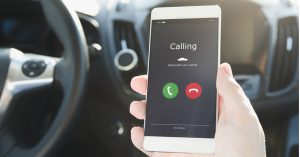
The Massachusetts hands-free driving law bans this action. Fines start today, April 1, 2020.
As of today April 1, Massachusetts police departments can start to issue citations and fines to drivers who violate the Massachusetts hands-free driving law. We encourage you to follow the Massachusetts COVID-19 “Stay at Home” advisory. But if you have to go out, you can help yourself drive more safely and avoid a fine by checking that your car is set up for hands-free mode. Even better? Read this update, but turn off your cell phone while driving. Many of us are exhausted and out-of-routine. Focus on the roads and what you need to get done, so you can get back home.
So far, many drivers are still picking up phones, despite the new law. During the initial grace period from Feb. 23-Mar. 31, police issued 4,500 written warnings across Massachusetts, according to a state official interviewed by WGBH. The official said drivers must become aware of both the law and that police are watching.
“…the police officers I’ve talked to seem to say that everyone who is pulled over says, “Yes, I’ve heard about it. Sorry. My mistake,” said Jeff Larason, director of highway safety at the Massachusetts Executive Office of Public Safety. (Listen to the WGBH segment in full).
Massachusetts passed a texting while driving law in 2010 but lawmakers spent nearly 10 years debating the handheld cell phone ban.
The Massachusetts hands-free driving law was passed by the Massachusetts Legislature in November 2019 and quickly signed by Gov. Charlie Baker on Nov. 29. To help drivers get ready, the state granted an initial grace period. Larason told WGBH 4,500 drivers had received written warnings (broadcast date: March 13). The Boston Globe reported State Police had issued 578 warnings to drivers, in just the first week. On Cape Cod, local police reported 150 verbal or written warnings in the first week (Source: South Coast Today via Cape Cod Times).
What the law allows and bans:
- The law states drivers cannot use any electronic device, including mobile telephones, unless the device is being operated in hands-free mode.
- Drivers can only touch cell phones and mobile phones once to activate hands-free mode.
- Cell phones must be properly mounted to the windshield, dashboard or center console and not impede with operation. This is the only way drivers are allowed to use GPS or voice to text technology such as Bluetooth.
- Drivers are specifically not allowed to touch phones for texting and emailing. Use of apps, video or Internet is also prohibited.
- Drivers who are 18 and younger are not allowed to use cell phones behind the wheel. Hands-free is illegal and can result in violation of their Massachusetts Junior Operator’s License.
- You may be stopped. But you are not allowed to pick up your phone at red lights or stop lights.
- You can pick up your cell phone and make a call if you are in a stationary position, outside a travel lane or bicycle lane.
- There is also an exemption for emergency professionals who need to pick up the phone for calls and those calling 911. 911 calls must be taken seriously. The state advises drivers to make every attempt to pull over before calling 911 – even if you are in hands-free mode.
Violations of the Massachusetts Hands-Free Driving Law
Police in Massachusetts can now start issuing tickets. Here are the penalties:First offense: $100 fine.
Second offense: $250 fine and distracted driving education.
Third offense: $500 fine and distracted driving education.
With a third offense, you may face an insurance surcharge.
Related:
Massachusetts hands-free driving law, Mass.gov
Breakstone, White & Gluck – Boston Personal Injury Lawyers: 800-379-1244
With more than 100 years combined experience, Breakstone, White & Gluck specializes in representing plaintiffs in personal injury cases involving car accidents, truck accidents, pedestrian accidents and bicycle accidents. Our attorneys have extensive experience handling cases for clients injured by negligent use of cell phones and texting while driving. We represent clients across the state of Massachusetts in car accident cases, including in Boston, the North Shore, the South Shore and Cape Cod.
We are open and working remotely for our clients during the state’s COVID-19 advisories. If you have been injured, we are providing free legal consultations at 800-379-1244 or 617-723-7676. You can also use our contact form.
Massachusetts Tries Again at Passing Hands-Free Driving Law
Hands-free legislation has taken a step forward in Massachusetts this year. So have the studies and research showing the dangers cell phones bring to the roads.
 Eight years ago, Massachusetts banned texting while driving. Since that time, lawmakers have considered several proposals to ban drivers from using hand-held cell phones, with a goal of reducing distracted driving injuries and fatalities. On May 15, 2019, the Massachusetts House of Representatives overwhelmingly supported another proposal with a 155-2 vote. As many watch, the state Senate now plans to discuss the legislation in early June. Watch with caution though. The Senate has already approved hands-free driving bills during each of the last two sessions, according to the State House News Service.
Eight years ago, Massachusetts banned texting while driving. Since that time, lawmakers have considered several proposals to ban drivers from using hand-held cell phones, with a goal of reducing distracted driving injuries and fatalities. On May 15, 2019, the Massachusetts House of Representatives overwhelmingly supported another proposal with a 155-2 vote. As many watch, the state Senate now plans to discuss the legislation in early June. Watch with caution though. The Senate has already approved hands-free driving bills during each of the last two sessions, according to the State House News Service.
Under the House bill (H 3793), drivers would not be able to use hand-held cell phones. If they want to talk, drivers will have to use hands-free technology such as a Bluetooth device and keep their hands away from their phones. The primary exception is drivers can make a single tap or swipe to activate the device’s hands-free mode. There is another limited exception for public safety personnel and drivers in certain emergency situations.
What about GPS? Drivers can continue to use GPS devices which are mounted onto their vehicle’s dashboard, but these must not impede operation.
Fines for violations would start at $100 for first-time offenders. There would be a $250 fine for a second offense and a $500 fine for third and subsequent offenses. The bill would take effect 90 days after passage, but drivers will receive warnings instead of fines for violations up until Dec. 31, 2019.
In addition to approving hands-free legislation, the House bill would also require an annual review of the race and demographic information for drivers who are issued traffic citations. While Massachusetts already collects this data, lawmakers say there needs to be a consistent and regular review.
Distracted Driving Increases Near Emergency Responders
As we wait for legislators to vote, we want to share a few recent studies on distracted driving.
In April, the National Safety Council (NSC) released an alarming and upsetting report on a dangerous trend: drivers using cell phones near emergency responders.
All 50 states have “move over” laws which require drivers to clear the way and give emergency responders space to work. The Massachusetts “Move Over Law” took effect in 2009 and protects the work area for police officers, firefighters, paramedics, tow truck drivers and all roadside emergency and maintenance professionals.
Despite these laws, the NSC reports 71 percent of drivers surveyed said they take photos and video when they see an emergency vehicle on the side of the road. While passing by, they film fires, car crashes and even routine traffic stops.
Drivers are doing more than capturing the scene. Sixty percent are also posting footage to social media. Another 66 percent are providing someone with an update by e-mail.
There is a tragic cost to this cell phone use. About 16 percent of drivers surveyed said they have actually hit a first responder or were involved in a near-crash. And despite their actions, nearly 90 percent agree: their cell phone use puts emergency responders in harm’s way.
This problem doesn’t go away once the ambulance or police car drives away. On a normal day, when emergency responders are not on the scene, 24 percent of the drivers admit they still snap pictures and record video. Another 29 percent of drivers say they engage with social media and 24 percent say send e-mails.
AAA Foundation for Driver Safety Reports on Teen Driving, Cell Phone Use
Another study comes from the AAA Foundation for Traffic Safety and reports on the risk teen drivers bring to the roads, including when they use cell phones.
The study focused on drivers between the ages of 15 and 18, including those with learner’s permits, restricted licenses (often called junior operator licenses) and full licenses. The study reports teens are a vulnerable driving group because of their inexperience and they need education into the potential consequences of cell phone use, speeding and other reckless behavior. AAA released the study to raise awareness between Memorial Day and Labor Day, often known as the “100 Deadliest Days.”
The study reported that teen drivers killed nearly 3,500 people from 2013 to 2017. Cell phone use contributes to these car accidents. Some 52 percent of teens said they had read a text message or sent an e-mail while driving, according to the AAA study.
AAA noted police often struggle to determine if texting caused a car crash, but that the study’s researchers made use of in-vehicle dash cameras. With these tools, AAA found 58 percent of teen crashes were the result of distractions, including texting and reading text from a cell phone.
About Breakstone, White & Gluck
Breakstone, White & Gluck of Boston specializes in representing those who have been injured by the negligence and wrongdoing of others. With more than 100 years combined experience, our personal injury attorneys represent clients in matters involving catastrophic injuries, car accidents, bicycle accidents, medical malpractice, head injuries and wrongful death.
For a free legal consultation, contact us toll-free at 800-379-1244 or 617-723-7676. You can also use our contact form.
Holiday Season Brings Rise in Car Crashes, Parking Lot Accidents

Parking lot crashes are more likely in Boston and Massachusetts this time of year, as holiday shoppers are out. What can you do to prevent accidents? Put down your cell phone, slow down and always watch for pedestrians.
When you finish your holiday shopping, and start to head home, you may be tempted to pick up your cell phone and call someone. But the parking lot is not a safe place and the holidays are not the season.
Unfortunately, car accident claims typically rise during the holidays, as many of us head out shopping or to enjoy holiday lights. According to the National Safety Council (NSC), the increase begins around Thanksgiving and Black Friday. We are now approaching one of the worst stretches, the days just before Christmas.
At Breakstone, White & Gluck, our Boston personal injury lawyers urge you to travel slowly and set aside distractions to prevent parking lot crashes. Too many drivers are engaging in these distractions, according to this recent National Safety Council poll:
- 66 percent of drivers nationwide said they would make phone calls while driving through parking lots.
- Teens were less likely to make phone calls than adults (60 percent).
- Another 63 percent said they would program GPS systems.
- More than half, 56 percent, said they would text and 52 percent said they would use social media.
- Another 50 percent said yes to sending or receiving e-mails, while 49 percent said they would take photos or watch videos.
- More than half of all teens and adults also admitted they would take time for personal grooming (59 percent of teens; 53 percent of adults).
Tips for Preventing Parking Lot Crashes
- Drive slowly. Give yourself plenty of time to react to pedestrians and other vehicles.
- Do not cut through parking lots; follow the traffic lane.
- Avoid distracted driving activities, such as cell phone use, texting, listening to loud music and engaging in intense discussion.
- Choose your place to check electronics, such as before you leave the mall or store.
- Use blinker signals.
- Obey stop signs and other signs. Back out carefully.
- Always watch for pedestrians in the parking lot and at the entrance. Be extremely patient and always wait for them to reach the sidewalk before moving.
- Walk all the way around your vehicle before stepping inside, looking for pedestrians and parents with small children and baby strollers.
- Consider parking away from other cars to avoid shopping mall parking lot crashes.
The Impact: Parking Lot Crashes
The Insurance Institute for Highway Safety reports parking lot crashes account for about 20 percent of all auto claims. The NSC reports on average each year, there are 60,000 injured by parking lot crashes and 500 or more who die. Pedestrian accidents account for many parking lot crashes. Backup accidents are responsible for nearly 10 percent of fatal pedestrian crashes in parking lots.
Over the past few years, a number of pedestrian accidents in Massachusetts parking lots have been fatal. In 2017, a Trader Joe’s employee in Acton was killed. A year earlier, a 52-year-old woman died in Wilmington, outside a Rite-Aid. In 2015, a pedestrian was killed in the parking lot of the Cloverleaf Mall in Natick, just across the street from the Natick Collection (or the old Natick Mall).
Cell Phone Use and Massachusetts Law
Eight years ago, Massachusetts banned texting while driving. If you are texting or writing an e-mail and cause a car crash, you could be cited by police. If you injure another driver, the police citation could be used in a civil lawsuit to prove your negligence and you will have to pay compensation to the victim.
All but three states have texting while driving bans. Hand-held cell phone bans are a different story, with just 16 states approving bans. Hand-held cell phones are still permitted when driving in Massachusetts, but safety advocates urge drivers not to use them, especially in parking lots. In a matter of seconds, a simple act such as trying to look up GPS directions or dialing a friend can lead to a serious and possibly fatal accident.
Free Legal Consultation: 800-379-1244
If you have been injured in a parking lot crash, it is important to learn your legal rights for seeking financial compensation under Massachusetts law. Contacting a Boston car accident lawyer promptly is essential so they can act quickly to protect your rights.
At Breakstone, White & Gluck, our lawyers have over 100 years combined experience representing those injured in auto collisions. For a free legal consultation, contact us at 800-379-1244 or 617-723-7676 or use our contact form.


